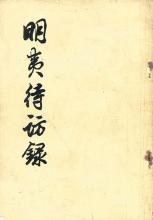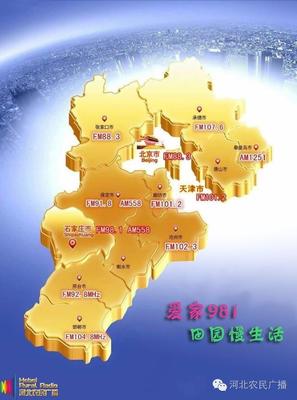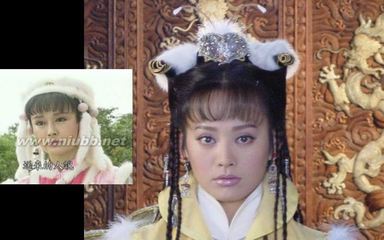
明朝遗臣黄宗羲,被蔡元培称为中国的卢梭。《明夷待访录》被称为中国的《人权宣言》。明夷是《周易》“地火明夷”,地在上而火在下,代表天色黑暗,光明被抑制住,天下大乱,待访是指等待人们了解。
onclick)arg1.onclick=null;if(arg1.onmousemove)arg1.onmousemove=null;if(arg1.onmouseover)arg1.onmouseover=null;if(arg1.ondblclick)arg1.ondblclick=null;if(arg1.onmouseenter)arg1.onmouseenter=null;if(arg1.onmouseleave)arg1.onmouseleave=null;return result;}‘>
onclick)arg1.onclick=null;if(arg1.onmousemove)arg1.onmousemove=null;if(arg1.onmouseover)arg1.onmouseover=null;if(arg1.ondblclick)arg1.ondblclick=null;if(arg1.onmouseenter)arg1.onmouseenter=null;if(arg1.onmouseleave)arg1.onmouseleave=null;return result;}‘> 《明夷待访录》指出整个中国历史上的一大害虫就是帝王制度!可惜当时很少有人发觉此一思想的重要性。在这个认识层面上,黄宗羲的观察很正确,整个中国历史上的大坏人只有一个,就是皇帝,让天下人缴税来供养他一人,自然享受不尽。但就苦了国人,不仅要供奉皇帝还要供养朝廷的大小百官,经过层层剥削,象一头牛被剥了几层皮一样。每次看到古代电视连续剧对某些帝王的行径,总是感到厌恶。大兴土木、建筑宏伟,雕梁画栋,穷奢极丽,自拥后宫佳丽3000,出行排场极尽铺张,不知要耗费国家多少资源。官员呢,自小饱读圣贤书,考取功名,应朝作官,原本应该遵循圣人之道教化人民,却发现必须同流合污才有前途。因此再有理想的官员也可能逐渐被腐化,象清朝,有捐官制度,一个县官要花上万两银子。清官海瑞呢,老老实实替人民服务,却因为没贿赂上层官员,反倒落得罢官的下场。真是痛心疾首!三百年前的明人曾有这么超前的见解。难怪清末从维新派康梁到革命党的孙文、邹容、陈天华,都用黄宗羲的学说来宣传自己的政治主张;难怪温宝家总理还盛赞黄宗羲的朴素民主观,拿“黄宗羲定律”解释中国的农村问题。
onclick)arg1.onclick=null;if(arg1.onmousemove)arg1.onmousemove=null;if(arg1.onmouseover)arg1.onmouseover=null;if(arg1.ondblclick)arg1.ondblclick=null;if(arg1.onmouseenter)arg1.onmouseenter=null;if(arg1.onmouseleave)arg1.onmouseleave=null;return result;}‘>
onclick)arg1.onclick=null;if(arg1.onmousemove)arg1.onmousemove=null;if(arg1.onmouseover)arg1.onmouseover=null;if(arg1.ondblclick)arg1.ondblclick=null;if(arg1.onmouseenter)arg1.onmouseenter=null;if(arg1.onmouseleave)arg1.onmouseleave=null;return result;}‘> 从《明夷待访录》来看,黄宗羲对于封建的现状,批判的很尖锐,他以勇敢的异端精神,批判旧的,设计将来的新世界,是值得称赞颂扬的。黄宗羲认为以天下为私的君主最终会被人民离弃,最终被人民推翻。批评那些不以天下为事,而只为一人一姓效忠的臣子,他称这些臣子为奴婢、仆妾,小儒。此外,他的学说客观上超越了儒家所讲的德治传统,提出法治的重要性,并指出法治比起人治更为重要,所谓:“有治法而后有治人”。主张废除一家之法,恢复古圣王时代的天下之法。
onclick)arg1.onclick=null;if(arg1.onmousemove)arg1.onmousemove=null;if(arg1.onmouseover)arg1.onmouseover=null;if(arg1.ondblclick)arg1.ondblclick=null;if(arg1.onmouseenter)arg1.onmouseenter=null;if(arg1.onmouseleave)arg1.onmouseleave=null;return result;}‘>
onclick)arg1.onclick=null;if(arg1.onmousemove)arg1.onmousemove=null;if(arg1.onmouseover)arg1.onmouseover=null;if(arg1.ondblclick)arg1.ondblclick=null;if(arg1.onmouseenter)arg1.onmouseenter=null;if(arg1.onmouseleave)arg1.onmouseleave=null;return result;}‘> 其实,在先秦时代由吕不韦门客们编写的《吕氏春秋》也有许多见识非常了不起。比如它的原始历史观、社会发展进步观,民本、民主思想,不但超越了同时代人,而且还影响了后人。《吕氏春秋》对“公”的解释也是另一个样的,最精彩的是下面的这句话:“天下非一人之天下也,天下之天下也。”它反对家天下的专制统治,喊出了天下是天下人的,而不是某一个人的这一响亮口号。这在古代思想史上是一个突破。可惜的是,作者既然已经认识到了天下不是一个人的天下,是大家的天下,为什么不进一步提出:让天下人自己来治理天下?要是那样的话,该在中国思想史上写下多么灿烂的一页呀!
onclick)arg1.onclick=null;if(arg1.onmousemove)arg1.onmousemove=null;if(arg1.onmouseover)arg1.onmouseover=null;if(arg1.ondblclick)arg1.ondblclick=null;if(arg1.onmouseenter)arg1.onmouseenter=null;if(arg1.onmouseleave)arg1.onmouseleave=null;return result;}‘>
onclick)arg1.onclick=null;if(arg1.onmousemove)arg1.onmousemove=null;if(arg1.onmouseover)arg1.onmouseover=null;if(arg1.ondblclick)arg1.ondblclick=null;if(arg1.onmouseenter)arg1.onmouseenter=null;if(arg1.onmouseleave)arg1.onmouseleave=null;return result;}‘> 德国哲人康德认为,人的私欲永不可免,道德完人永不求(很难找到或教化出来)。那么,按这种理论,康德就认为,以道德教化(以德治国)来提高大家从而建立一个幸福发达社会,是不可能的。但是,当以民主宪政使人们彼此互为制衡时,就算是魔鬼,也只能空有无限坏心却做不了多少坏事了。也就是说,人民群众的普遍素质哪怕再低,也不会妨碍到民主制度的运作,进而也不会妨碍社会总体福利水平的提升。康德的观点和《吕氏春秋》的观点从本质上来看是近乎一样,让君主行仁义这种道德教化——所谓以德治国,是一种乌托邦的幻想,除了假仁假义以外,并不能真正提高社会能力。有效的办法,是从体制和机制的手段上下功夫。看来康德也是个承认“性本恶”的法家类型的思想者。
onclick)arg1.onclick=null;if(arg1.onmousemove)arg1.onmousemove=null;if(arg1.onmouseover)arg1.onmouseover=null;if(arg1.ondblclick)arg1.ondblclick=null;if(arg1.onmouseenter)arg1.onmouseenter=null;if(arg1.onmouseleave)arg1.onmouseleave=null;return result;}‘>
onclick)arg1.onclick=null;if(arg1.onmousemove)arg1.onmousemove=null;if(arg1.onmouseover)arg1.onmouseover=null;if(arg1.ondblclick)arg1.ondblclick=null;if(arg1.onmouseenter)arg1.onmouseenter=null;if(arg1.onmouseleave)arg1.onmouseleave=null;return result;}‘> 中国传统的政治观念建立在“人性本善”假设之上。国家兴盛的希望必须依赖于统治者的个人修养。而黄宗羲总结历史上王朝兴衰,尤其是明朝灭亡的经验教训。另辟蹊径,提出,人性的本质是自私的,权力的制约,不能光靠君主的个人道德修养,必须用制度制约权力。因此,人治之前必须法治。这是对中国传统政治学说的伟大创新,至今还有现实意义。
onclick)arg1.onclick=null;if(arg1.onmousemove)arg1.onmousemove=null;if(arg1.onmouseover)arg1.onmouseover=null;if(arg1.ondblclick)arg1.ondblclick=null;if(arg1.onmouseenter)arg1.onmouseenter=null;if(arg1.onmouseleave)arg1.onmouseleave=null;return result;}‘>
onclick)arg1.onclick=null;if(arg1.onmousemove)arg1.onmousemove=null;if(arg1.onmouseover)arg1.onmouseover=null;if(arg1.ondblclick)arg1.ondblclick=null;if(arg1.onmouseenter)arg1.onmouseenter=null;if(arg1.onmouseleave)arg1.onmouseleave=null;return result;}‘> 黄宗羲还认为学校不只传道、授业,解惑,而是要积极参加国事。主张恢复学校舆论中心功能,以舆论监督政府,通过士人的舆论监督,使政府不敢怠慢,兴良政,去弊政。黄宗羲能这么早就认识到对政府进行舆论监督的重要性,真是了不起。但后来的清朝,却完全背道而驰,大兴文字狱,堵民之口,以致中国历史走了很大的弯路。幸好,走了这么多的弯路之后,今天的政府终于开始重新认识到舆论监督的必要性了。
onclick)arg1.onclick=null;if(arg1.onmousemove)arg1.onmousemove=null;if(arg1.onmouseover)arg1.onmouseover=null;if(arg1.ondblclick)arg1.ondblclick=null;if(arg1.onmouseenter)arg1.onmouseenter=null;if(arg1.onmouseleave)arg1.onmouseleave=null;return result;}‘>
onclick)arg1.onclick=null;if(arg1.onmousemove)arg1.onmousemove=null;if(arg1.onmouseover)arg1.onmouseover=null;if(arg1.ondblclick)arg1.ondblclick=null;if(arg1.onmouseenter)arg1.onmouseenter=null;if(arg1.onmouseleave)arg1.onmouseleave=null;return result;}‘> 无可否认,黄宗羲发挥了孟子的民本论“民为贵、社稷次之,君为轻”的思想。很明显他并未有跳出圣君贤相这种儒家理想的道德政治的窠臼。他所提出的种种设想,目的止于限制君权,而并无提出主权在民和政治须由公意所决定,其实这才是现代民主理论的必须条件。从根本上来说:黄宗羲是传统社会一心一意专事“补天”的“抱道君子”,而不是传统政治体系的所谓“掘墓人”;他的政治哲学仍然是服务于传统王权的儒家正统政治哲学。
onclick)arg1.onclick=null;if(arg1.onmousemove)arg1.onmousemove=null;if(arg1.onmouseover)arg1.onmouseover=null;if(arg1.ondblclick)arg1.ondblclick=null;if(arg1.onmouseenter)arg1.onmouseenter=null;if(arg1.onmouseleave)arg1.onmouseleave=null;return result;}‘>
onclick)arg1.onclick=null;if(arg1.onmousemove)arg1.onmousemove=null;if(arg1.onmouseover)arg1.onmouseover=null;if(arg1.ondblclick)arg1.ondblclick=null;if(arg1.onmouseenter)arg1.onmouseenter=null;if(arg1.onmouseleave)arg1.onmouseleave=null;return result;}‘> 总括来说,黄宗羲所主张限制君权的思想是前无古人的。他能将儒家传统的民本论加以发挥,而成一套完整的政治理论,已是很难得了。难怪温家宝总理在《致史晓风先生函》中精辟指出:“我喜读黄宗羲著作,在于这位学问家的许多思想有着朴素的科学性和民主性。身为天下人,当思天下事。而天下之大事莫过于‘万民之忧乐’了。行事要思万民之忧乐,立身要先天下之忧而忧,后天下之乐而乐”。这些论述,深刻地体现了当代中国领导人坚持“以民为本、执政为民”根本宗旨的思想风格与行为准则,也从正面反映了黄宗羲朴素民主思想的现代意义与价值。
onclick)arg1.onclick=null;if(arg1.onmousemove)arg1.onmousemove=null;if(arg1.onmouseover)arg1.onmouseover=null;if(arg1.ondblclick)arg1.ondblclick=null;if(arg1.onmouseenter)arg1.onmouseenter=null;if(arg1.onmouseleave)arg1.onmouseleave=null;return result;}‘>
onclick)arg1.onclick=null;if(arg1.onmousemove)arg1.onmousemove=null;if(arg1.onmouseover)arg1.onmouseover=null;if(arg1.ondblclick)arg1.ondblclick=null;if(arg1.onmouseenter)arg1.onmouseenter=null;if(arg1.onmouseleave)arg1.onmouseleave=null;return result;}‘> 在全球化时代,我们研究先人的传统政治学说、治国理念是有现实意义与价值的。目前中国的国务治理面临着巨大的挑战!变革的成功与挫折的根本区别,并不在于变革过程中是否会出现各种各样的矛盾与冲突,而在于社会能否形成化解矛盾、平衡冲突的能力。而有效的国务治理必须以历史传统、现实国情与时代特征为基础,通过以价值引导、制度维系与组织支撑三个维度为核心内容的政治建设,实现国务治理与政治建设的和谐互动,最终达成有效而民主的国务治理。历史证明,必须坚持在共产党的领导下,才能建立了真正的民主制度,实现人民当家作主。以法治国、以民为本的执政理念,必将在思想上、实践上把中国特色的民主政治推向一个新的历史高度!
 爱华网
爱华网


